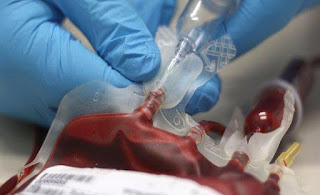Advancements in Clinical Diagnostics: Pioneering Precision Medicine
In the ever-evolving landscape of healthcare, one area that has seen remarkable progress is clinical diagnostics. As technology continues to push the boundaries of what's possible, precision medicine has emerged as a revolutionary approach to diagnosis and treatment, tailored to each individual's unique characteristics. This blog explores some of the groundbreaking advancements in clinical diagnostics that are propelling the field of precision medicine forward.
The Era of Personalized Medicine
Traditional one-size-fits-all approaches to medicine are gradually giving way to personalized treatment strategies. Clinical diagnostics now harness the power of genomics, proteomics, and other 'omics' technologies to uncover an individual's genetic makeup and molecular profile. By understanding these intricate details, healthcare professionals can tailor therapies that are more effective and less prone to adverse effects.
Liquid Biopsies: Non-Invasive Miracles
Gone are the days when biopsies required invasive surgical procedures. Liquid biopsies, a game-changing advancement in clinical diagnostics, enable the detection of cancer and other diseases through a simple blood draw. These tests analyze circulating tumor cells, cell-free DNA, and other biomarkers, offering early detection and monitoring capabilities with unparalleled convenience.
AI and Machine Learning: Enhancing Diagnostics
Artificial intelligence (AI) and machine learning algorithms have transformed the analysis of medical data. From image recognition in radiology to pattern recognition in genetic sequencing, AI aids in rapidly interpreting vast amounts of information, leading to faster and more accurate diagnoses. As these technologies continue to evolve, diagnostic capabilities will only become more sophisticated.
Microfluidics: Miniaturizing Diagnostics
Microfluidics, the science of manipulating tiny amounts of fluids, has paved the way for portable and point-of-care diagnostic devices. These microscale technologies not only reduce the need for large laboratory equipment but also enable quick and on-the-spot testing. Whether it's diagnosing infectious diseases or monitoring chronic conditions, microfluidics is revolutionizing clinical diagnostics.
Big Data and Bioinformatics: Unraveling Insights
The wealth of medical data available today is staggering, but the challenge lies in extracting meaningful insights. Bioinformatics plays a vital role in integrating, analyzing, and interpreting complex datasets. By leveraging big data, researchers and clinicians can identify disease patterns, predict outcomes, and design targeted therapies, ultimately advancing precision medicine.
Early Disease Detection: A Game-Changer
With precision medicine at the forefront, early disease detection has become a crucial focus. Through novel diagnostic techniques and increased awareness, healthcare professionals can identify potential health issues in their early stages. This proactive approach opens doors to more effective interventions and improved patient outcomes.
In conclusion, the field of clinical diagnostics is propelling medicine into an era of precision and personalized care. Advancements in technology, data analytics, and our understanding of genetics have paved the way for a more targeted and effective approach to healthcare. As these innovations continue to unfold, the future holds the promise of better diagnostics, treatments, and ultimately, improved quality of life for patients around the world.




Comments
Post a Comment